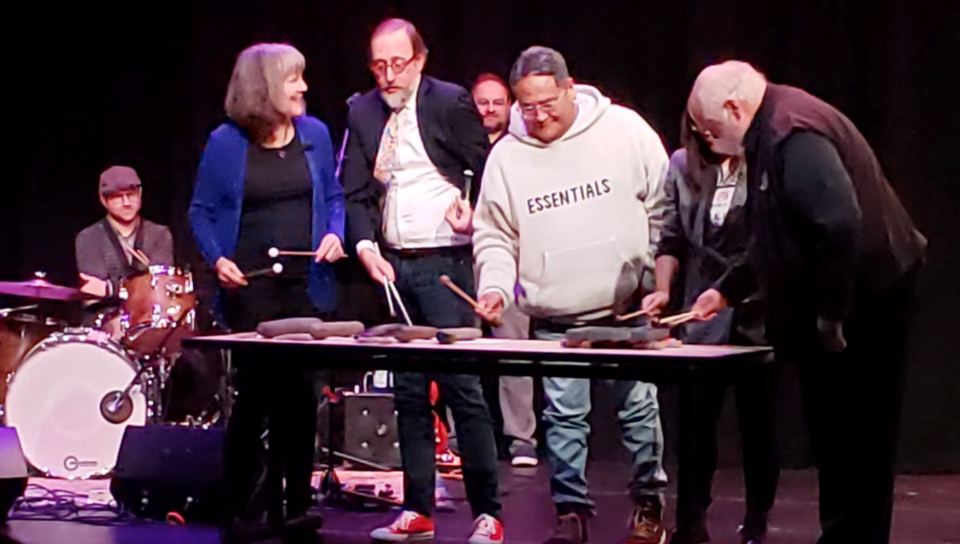People who attend the Longmont Symphony Orchestra’s performance on April 23 will have the special, unique opportunity of watching a real “made in Longmont” story play out for the first time on stage.
LSO’s performance will feature never-before-heard music by Longmont-based composer Michael Udow, who used archaeologist Marilyn Martorano’s discovery of an ancient percussion instrument to influence his composition.
Udow, a longtime percussionist, moved from Michigan in 2011. Upon his arrival, he heard about a set of stones – unusually shaped and varied in lengths and thicknesses – that were found in San Luis Valley near the Great Sand Dunes National Park in Colorado.
What happened from there, Catherine Beeson, the executive director of LSO said, “is just this cute, sweet, kind of kismet story.”
The stone collection was being held at the History Colorado Center, although no one could figure out the significance of the set of stones at the time, according to Beeson.
“They thought maybe the 6,000 year old stones were some kind of tool, or that they had been used for grinding corn,” Beeson recalled.
In 2013, Martorano, also from Longmont, looked at the stones along with her daughter, who plays percussion instruments.
Martorano’s daughter suggested she tap on the stones, Beeson said. “Once they tapped on the stones, they immediately noticed a ringing sound.”
Martorano realized the stones comprised a set of ancient lithophones – a sort of xylophone made of stones, Beeson explained.
The discovery of the ancient set of lithophones caught the attention of Udow. The pair connected and realized they both lived just a few blocks away from each other.
“Lots of things ignite the imagination of a percussionist – especially a percussionist turned composer – but nothing quite like this story,” Beeson said about this moment.
The ancient lithophones caused Udow’s creative juices to flow. He came up with an idea to make a modern set of lithophones and to write a piece of music around the idea of the ancient stones and modern stones, Beeson said, “and connecting that arc of human genius from 6,000 years ago.”
For the following few years, Udow had a 300 pound set of lithophones made out of granite that he sourced from around Colorado. He had them specifically cut and shaped so they’d produce the perfect sound, pitch and tone he wanted, Beeson said.
When the modern set of lithophones were completed, Udow reached out to LSO’s Conductor, Elliot Moore, and asked for his help conceptualizing the kind of composition he wanted to create with the new lithophones.
“Elliot told him, ‘this is incredible; we have to do this. You have a whole symphony orchestra at your disposal. See what you can do,” Beeson said with a laugh.
Udow worked on a piece of music called "Ancient Echoes," which features a variety of percussion and orchestra instruments.
During LSO’s performance on April 23, “the Longmont Symphony and the Longmont community will have the honor of experiencing Udow’s music and bringing it to life for the first time,” Beeson said.
The concert will feature music played with Udow’s modern set of lithophones, as well the ancient set of lithophones, which LSO rented from the History Colorado Center for the occasion.
While LSO plans to reenact some parts of their upcoming concert in future performances, this might be the one and only time the group can use the ancient lithophones on stage, Beeson said. In this way, “this is the only time the Longmont community will be able to experience this performance with the ancient, 6,000 year old lithophones part of it,” she added.
The performance begins at 7:30 p.m. on April 23 at the Vance Brand Civic Auditorium.
CORRECTION: This article has been altered to reflect the correct spelling of Catherine Beeson's name and the correct, current name of the History Colorado Center.


